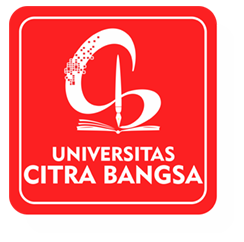Penerapan Metode Perbandingan Eksponensial Dalam Pengambilan Keputusan Penggunaan Aplikasi Pembelajaran Daring
Keywords:
Metode Perbandingan Eksponensial, Aplikasi Pembelajaran DaringAbstract
Metode perbandingan eksponensial digunakan sebagai pengambil keputusan untuk mengetahui E-learning mana yang lebih efektif digunakan dalam perkuliahan secara daring di program studi Pendidikan Informatika Universitas Citra Bangsa Kupang.
Penelitian ini bertujuan untuk megetahui bagaimana cara memilih aplikasi mana yang lebih tepat digunakan dalam proses perkuliahan secara daring di program studi Pendidikan Informatika Jenis penelitian ini adalah kuantitatif dengan menggunakan Metode Perbandingan Eksponensial.
Berdasarkan hasil penelitian yang telah dilakukan terlihat bahwa zoom menempati posisi tertinggi dengan jumlah nilai 7,68, Classroom menempati posisi kedua dengan jumlah nilai 7,67 dan posisi terendah Edmodo dengan jumlah nilai 4,79. Jadi mengetahui E-learning yang lebih efektif digunakan dalam perkuliahan secara daring di program studi Pendidikan Informatika adalah Zoom.
Downloads
Downloads
Published
How to Cite
Issue
Section
License
Every works in JUMPIKA is licensed under a Creative Commons Attribution-ShareAlike 4.0 International License.
Authors who publish with this journal agree to the following terms:
- Authors retain copyright and grant the journal right of first publication with the work simultaneously licensed under a Creative Commons Attribution License that allows others to share the work with an acknowledgment of the work's authorship and initial publication in this journal.
- Authors are able to enter into separate, additional contractual arrangements for the non-exclusive distribution of the journal's published version of the work (e.g., post it to an institutional repository or publish it in a book), with an acknowledgment of its initial publication in this journal.
- Authors are permitted and encouraged to post their work online (e.g., in institutional repositories or on their website) prior to and during the submission process, as it can lead to productive exchanges, as well as earlier and greater citation of published work (See The Effect of Open Access).




